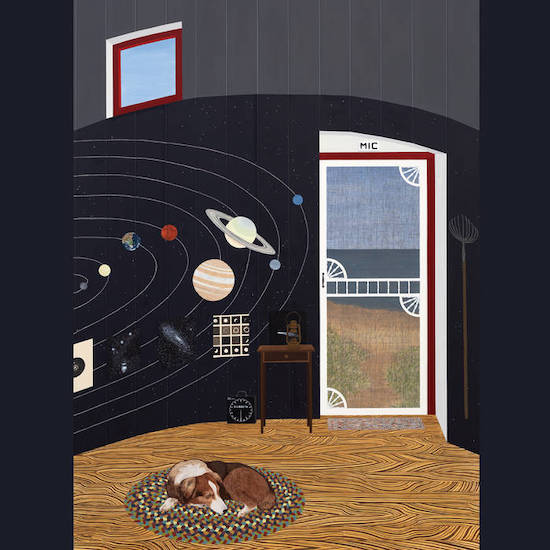The closest most of us get to a harp is through the biblical narratives being played out on renaissance frescos, or the Celtic harp on a cold pint of Guinness. The sad fact is that you will have to go out of your way to see a 6ft Lyon & Healy Concert Grand specimen being played in your lifetime, as they will rarely come to you. Even harp music in general is a rare breed, with the instrument usually reserved as a mere tendril of the greater philharmonic organism. Into the politics of modern harp music enter aspiring one-woman choir Mary Lattimore, who has taken on the responsibility of taking the harp from the hereafter and into the here and now. From concertos to RA Live. From conventional classical to contemporary cool.
Mary achieves this in a number of ways. Firstly and most importantly she does not play classically minded even though she is classically trained. Her arrangements are free flowing, organic and unrestrained by the customs of formulaic concerto compositions. Second, she makes extensive use of effects and synthesizers to complement the fundamentals and harmonics of her harp. In Silver Ladders Mary adds guitars to that list of supporting actors through the artisan guitarwork of Slowdive’s Neil Halstead. Together they take the listener on a barefoot midnight stroll past serene starlit waters and windy beaches strewn with the gear of surfers swept out to sea never to be seen again.
Throughout the record Mary and Neil use their instruments as tools to translate the more subtle shades of emotion, the moods that straddle the veritable shadow realm of feeling. Not the elementary feelings that are so clearly identified and presented as caricatured emotions when sung, the warbling of love or the mooching of sadness, but the more profound emotional backdrops that words can often fail to lucidly convey.
Silver Ladders is not premeditated in its ability to inspire these reflections either. The first track ‘Pine Trees’ does not weigh on suspense or drama to set the scene, instead it launches headfirst into a soft and unpretentious waltz of light loose strings that feels like a warm hug from a long-lost musky aunt. Eventually higher notes are plucked as a subtle organ starts to breathe, staining the background with distant blotches of fuzzy sound.
The strings of the title track sound like a celestial lullaby. A wordless nursery rhyme to ease the existential angst of a baby bodhisattva’s final rebirth. Towards the end the jingles of one of the string movements condense and vibrate until they sound like a snow-capped cherry blossom shedding its petals in a great gust of pink and white. The air itself vibrating with the strong harmonics and atmospheric delay generated from Lattimore’s harp.
In the ten-minute-long ‘Til A Mermaid Drags You Under’, Halstead’s pastoral twangs twinned with his mantric chords lay a velvet carpet for the eventual entrance of Lattimore’s tickling of diamond dusted notes. The harp generates a subtle electricity of motion over Halstead’s wails and contortions, sucking the listener into a whirlpool of beautiful melancholy. Those roles are reversed in ‘Sometimes He’s In My Dreams’ and ‘Don’t Look’ with Lattimore’s seraphic strumming forming a pier of sound for Halstead to make his night dives from. His delayed chords are then left to swim in an ocean of black glass as the harp in the background forms a surface light that just about manages to pierce its depths.
There is no momentum or force that drives Silver Ladders onward. No direction in its stirrings of mood and sound that flutter and beat like a leaf caught between walls of wind. The beauty of the album is in that feeling of organic spontaneity, in the movements that suddenly depart and retreat into lightless caves before assimilating back into their icy harmonies. In Silver Ladders, Mary Lattimore brings the harp back down to earth still covered in clouds, but also threaded with veins of gloom that marble its silvery glow.


